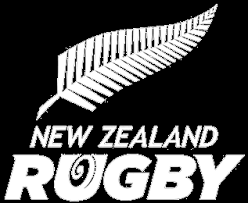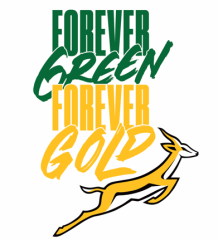All Blacks and RSA to mark 99th Armistice Day with special tribute
| All Blacks and RSA to mark 99th Armistice Day with special tribute All Blacks to wear New Zealand’s RSA poppy on sleeve in Armistice Day Test |
| For the first time, the All Blacks will wear the Returned and Services Association’s New Zealand poppy on the sleeve of the All Blacks jersey when the team takes the field on Armistice Day against France in Paris.
The poppy, which is known as the Earl Haig design, was designed specifically for New Zealand and has been in use since 1978. The All Blacks will wear an embroidered poppy on their jerseys to honour those who died in the service of New Zealand and all serving and ex-service veterans in the Test match on Saturday November 11. It is the second year that New Zealand’s Returned and Services Association (RSA) has joined forces with the All Blacks to honour Armistice Day. November 11 marks the days that the guns fell silent on the Western Front in 1918, signalling the end of the First World War. As well as wearing the RSA poppy on their sleeve, an All Blacks contingent will also pay their respects at a rekindling of the eternal flame ceremony at the Tomb of the Unknown Soldier at the Arc de Triomphe in Paris on Wednesday evening (French time). The remains of an unknown French solider were buried at the monument on Armistice Day in 1920 and the flame ceremony has been carried out every evening at 6.30PM since 1921. RSA President BJ Clark says Armistice Day is a day of great historical significance, solemnity and remembrance through-out the world, particularly in Europe. “Anzac Day has traditionally been the focus of remembrance in New Zealand. But Armistice Day is far larger internationally, so we are keen to educate Kiwis about this important milestone. Having the All Blacks help us tell that story and pay tribute to all New Zealand veterans, is a great help.” All Blacks Head Coach Steve Hansen said: “I think it’s important for all New Zealanders to honour our veterans. So many lives have been lost in various wars and campaigns over the years, and all of that has been for the protection of our own freedom and rights.” Every year in recent times the All Blacks have marked Armistice Day during their Northern Hemisphere tours and no more so than when they have played France on or around Armistice Day. The two countries play for the Dave Gallaher Cup, which is named after the captain of the 1905-06 “Originals” All Blacks. Gallaher died on October 4, 1917, from wounds suffered in the Battle of Broodseinde, part of the bloody Passchendaele campaign. To watch Steve Hansen talk about the importance of honouring those who have served our country, click here. Watch All Blacks lock Sam Whitelock talk about his late grandfather Nelson Dalzell who served in World War II and went on to play 17 games for the All Blacks in 1953-1954. Click here. About Armistice Day Armistice Day is commemorated every year on November 11 to mark the armistice signed between the Allies of World War I and Germany, for the cessation of hostilities on the Western Front. This took effect at eleven o’clock in the morning-famously the “eleventh hour of the eleventh day of the eleventh month” of 1918. As a result, a service and a period of silence is typically observed at 11am. The 11th of November is also recognised as Remembrance Day and Veterans Day in some countries. In New Zealand, wreath-laying ceremonies mark Armistice Day at the National War Memorial in Wellington and at many local War Memorials throughout New Zealand. As part of these ceremonies, two minutes silence is observed at 11am in memory of those New Zealanders who died while serving their country. |
Related Posts
« Intelligent Irish side a huge threat, says Proudfoot England squad update »



















